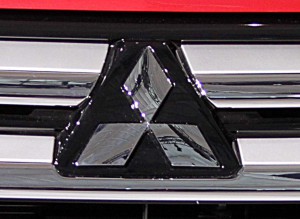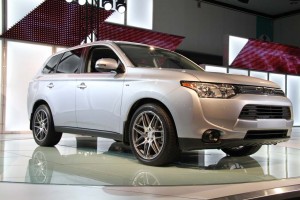
Mitsubishi officials acknowledged today that all of its mileage ratings on vehicles in Japan for the last 25 years may have been falsified.
The mire Mitsubishi Motors Corp. has fallen into continues to worsen as the embattled Japanese automaker today acknowledged it may have cheated on the fuel economy of all the vehicles it has sold in Japan in recent years.
The maker last month admitted it had rigged mileage tests for at least some of its models going back 25 years. Industry analysts are warning that if the latest revelations prove accurate, the company could be forced to compensate its customers to the tune of nearly $1 billion. The company could also face hefty fines and even criminal penalties as the result of an ongoing Japanese investigation.
The latest revelations focused on vehicles sold only in the Japanese market. Mitsubishi has so far said it did not rig mileage tests for models sold in the U.S. or other export markets. But more information is expected to come to light through an ongoing investigation set to wrap up over the coming summer.
The scandal was touched off when, last month, Nissan Motor Co. raised questions about the fuel economy ratings for several minicars it sells. Data for those vehicles, produced for Nissan by Mitsubishi, had some disturbing anomalies, and a follow-up by the smaller maker found it had rigged the tests for at least four products it built for the micro, or so-called kei car, segment.
President and Chief Operating Officer Tetsuro Aikawa later revealed that Mitsubishi engineers used the U.S. fuel economy test – which generates better mileage numbers by focusing more on open highway driving – to boost the results for vehicles sold in Japan. The heavy traffic and low driving speeds in cities like Tokyo mean vehicles sold in Japan generally get worse fuel economy.
(Mitsubishi cheated on mileage numbers in Japan. For more, Click Here.)

While mileage ratings for Japanese models were rigged, officials insist that U.S. ratings are accurate.
Saying “I feel a great responsibility” for the scandal, Aikawa empowered an independent panel to look into Mitsubishi’s mileage testing process. Among the three lawyers assigned to the task, one previously served as a criminal prosecutor.
Meanwhile, Japanese authorities have raided a Mitsubishi lab looking for evidence that could eventually lead to charges against the company. U.S. regulators also appear to be interested in the scandal.
For now, however, the carmaker claims it has done nothing illegal in the United States.
(Mileage scandal expected to lead to ouster of top Mitsubishi execs. Click Here for the story.)
The carmaker has suffered a sharp decline in home market sales since admitting it rigged tests for the Mitsubishi eK wagon and eK Space models, as well as the Dayz and Dayz Roox minicars sold by Nissan. The maker’s stock has been badly hammered, as well.
Complicating Mitsubishi’s image problem, the latest scandal has revived concerns about the company’s ongoing quality control. In the early 2000s, it was revealed that Mitsubishi had concealed a variety of problems with its vehicles, including faulty brakes and clutches, as well as parts that could unexpectedly fall off. A tire that separated from one vehicles killed a pedestrian on a Japanese sidewalk.
Combined with serious financial mismanagement in the U.S. and other markets, Mitsubishi nearly went bankrupt in the early part of the new millennium, the company saved only with the help of Japanese banks.
(To see about automakers under fire for bending the truth, Click Here.)
The latest mileage scandal comes at a time when Japan’s auto industry has been tarnished by other issues, most notably the expanding recall of airbags produced by supplier Takata. The U.S. National Highway Traffic Safety Administration this month announced it was ordering the recall of 35 million to 40 million more airbags due to potentially deadly defects.
